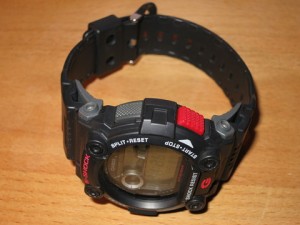Uhren in Computern mit modernen Betriebssystemen und Internet-Verbindung sind recht komfortabel: Sie setzen sich dank NTP und und hinterlegter Zeitzonen-Informationen automatisch. Das passiert nicht nur zu der Sommer-/Winterzeitumstellung, sondern ständig im Hintergrund.
Hat man keine andere verlässliche Zeitquelle wie z.B. eine Funkuhr zur Hand bietet es sich daher an zum Stellen von anderen Uhren auf die Computerzeit zuzugreifen.
Continue reading “Zeitumstellung, Nicht-Computer-Uhren stellen”
